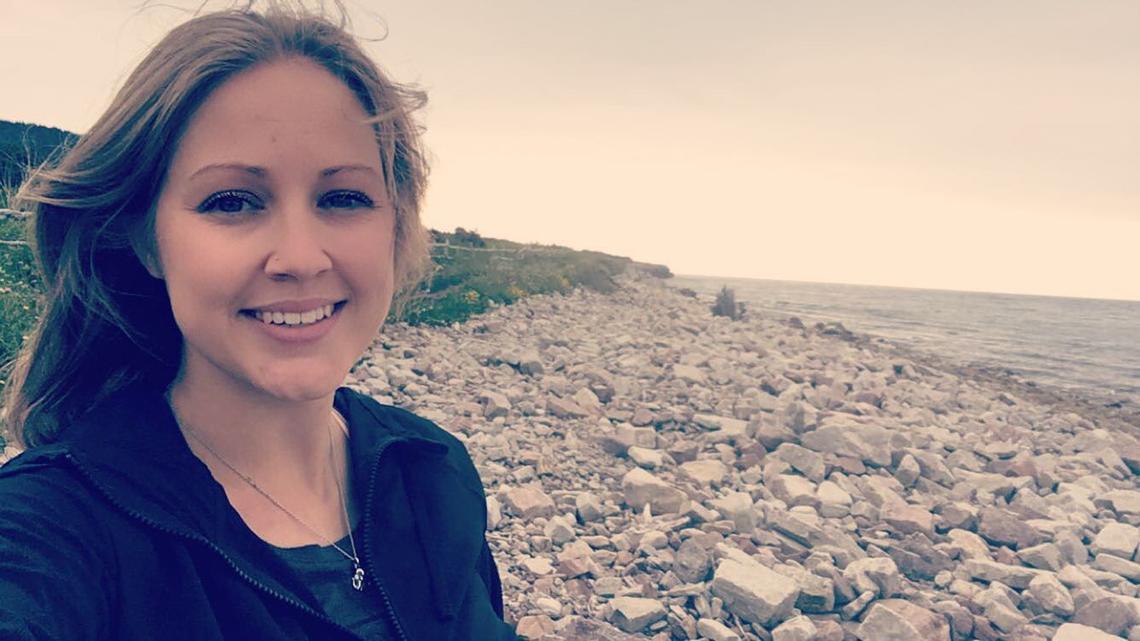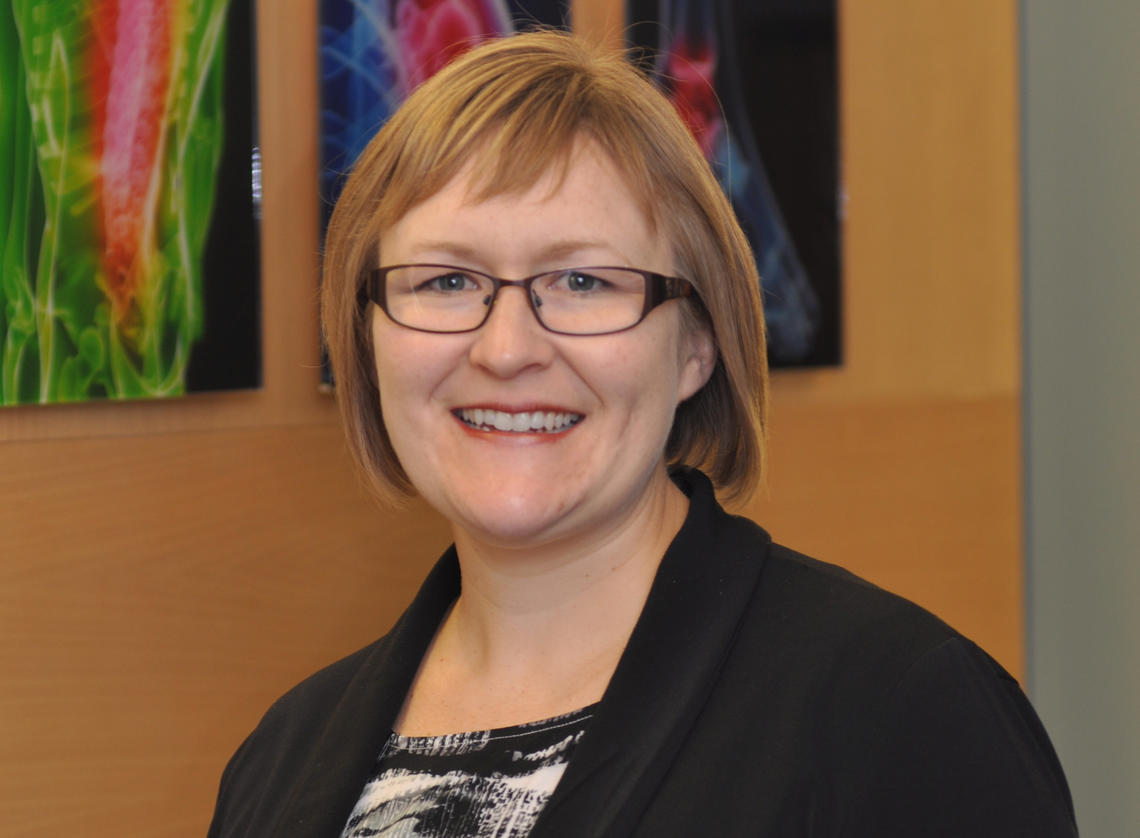June 17, 2020
Med school's Connection Circles help bridge COVID-19 gap

In the midst of the COVID-19 pandemic, Connection Circles are offering a space to be together for Indigenous students, faculty and staff. And it’s a shift to a virtual platform that’s helped make it happen.
“Connecting with Elders and Traditional Knowledge Keepers goes beyond supporting me through my educational journey, but through my journey to discover who I am, what I can do, and what is my purpose,” says Ashley Cornect-Benoit, a PhD student at the Cumming School of Medicine (CSM).
- Photo above: Connection Circles participants sharing words of gratitude. Photo by Katrina Fras

Ashley Cornect-Benoit
A few months ago, Indigenous students like Cornect-Benoit who were participating in the Alberta Indigenous Mentorship in Health Innovation (AIM-HI) Network mentioned they felt a gap between themselves and their support network as their curriculum and research shifted online due to COVID-19.
Dr. Cheryl Barnabe, MD, AIM-HI principal investigator and UCalgary associate professor, knew from previous experience with sharing circles that the circles would be a great way to address this gap during these isolating times. She began planning the circles, coined Connection Circles, with Katrina Fras, AIM-HI Network co-ordinator.

Cheryl Barnabe understands the value of sharing circles, and coined the name Connection Circles.
Pairing traditional practice with a modern platform
Barnabe also knew just the person to ask to lead the circles — Dr. Andrea Kennedy PhD, RN, AIM-HI Network mentor and Mount Royal University associate professor. Kennedy has extensive experience with sharing circles including receiving teachings from her Hanai mother, Hawaiian Elder Francine Dudoit Tagupa and her Cree Elder, Grandmother Doreen Spence.
Renée Huntley, co-ordinator for both the IHP and the Traditional Knowledge Keepers in Residence program, was asked to co-develop the Connection Circles series. She invited the eight Elders participating in the Traditional Knowledge Keepers in Residence Program to participate in the Connection Circles series.
A group of up to 20 people gathers online every Friday for two to three hours. Two to three Elders support each connection circle. Prayer marks the beginning and end of each session. The focus is to listen deeply while stories are shared, and Elders provide guidance. For Kennedy, the circles are about “honouring time together and recognizing we need time together.”
A valuable experience
“The connection circles were something I didn’t realize I needed until I joined in. This platform has allowed me time to reflect on how I was feeling and to shift focus onto positive ways to cope during the pandemic,” says Sara Scott, a research assistant at the CSM.

Sara Scott
Faculty benefit from the Connection Circles as well. “I take comfort in knowing that there is a place the students can be for safety and support, and that the Elders will make sure the student is in a good place, and can help them maintain or regain their wellness through their challenging education programs and the isolation of the pandemic,” Barnabe says.
The Elders who host the Connection Circle series experience positive effects from spending time together as well. “My time spent supporting the Connection Circles during these trying times has given me more time for prayer, meditation and the ability to do the necessary work in a more calm and quiet space,” shares Grandmother Doreen Spence.
A new home
When it is safe to meet in person, the Connection Circles will take place in the Indigenous, Local and Global Health Office’s Indigenous Hub located at UCalgary’s Foothills campus — a welcoming space for students, staff, faculty and Elders to gather. Until then, the Connection Circles will continue virtually, offering support and an opportunity to listen, reflect and learn.
The Traditional Knowledge Keepers in Residence Program is funded by an ii’taa’poh’to’p’ Intercultural Capacity Building grant. This program fosters diversity, encourages mentorship, and helps integrate the Indigenous Strategy within education, research, and community outreach. Programming is run through the Cumming School of Medicine’s Indigenous, Local and Global Health Office out of the Indigenous Hub.
ii’ taa’poh’to’p, the University of Calgary’s Indigenous Strategy, is a commitment to deep evolutionary transformation by reimagining ways of knowing, doing, connecting and being. Walking parallel paths together, ‘in a good way,’ UCalgary will move towards genuine reconciliation and Indigenization.
Cheryl Barnabe is a Métis rheumatologist whose health services research program is focused on identifying and resolving health system care gaps for Indigenous patients. She is the Nominated PI of the Alberta Indigenous Mentorship in Health Innovation (AIM-HI) Network, funded by the CIHR Indigenous Mentorship Network Program.
Grandmother Doreen Spence is an internationally respected Cree Elder, a strong advocate for human rights and one of the first Indigenous women to obtain a practical nursing certificate. She now focuses on sharing her teachings and traditional healing practices around the world.
UCalgary resources on COVID-19
For the most up-to-date information about the University of Calgary's response to the spread of COVID-19, visit the UCalgary COVID-19 Response website.





